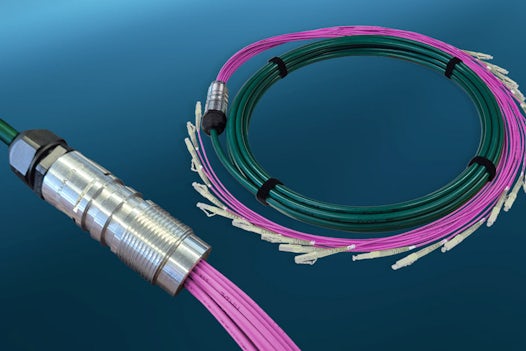
Digital future for conurbations
“Smart cities” need modern infrastructures for IT and communication
29 July 2022

The growth of the world’s metropolitan areas continues unabated. This means that an increasing number of major cities are pursuing “smart city” strategies. New urban development concepts are being created, based on digital solutions, networked infrastructures and intelligent systems. By networking energy, buildings and mobility the conurbations are hoping for increased future viability. Further positive effects of these smart city strategies are climate protection, sustainable development, enhanced quality of life and greater competitiveness.
Cities of the future: London, New York, San Francisco, Berlin
How far these approaches towards smart cities have already progressed today is shown by the “City of the Future Index” . It has surveyed several thousand major cities worldwide on the use of innovative and future-oriented technologies. In the category with a population of over three million London achieves the highest rating with 100 points, followed by New York and San Francisco. Berlin ranks a respectable fifth, scoring mainly on clean transport and parking innovations.
Technologies and solutions for smart cities have huge potential: by 2026 the market for smart cities is predicted to increase by around 18 percent annually to 2036 billion US dollars. The eco Association of the German Internet Industry e.V. anticipates even higher growth rates for Germany. By 2026 sales of 38.5 billion euros in 2021 should more than double to 84.7 billion euros.
5G, edge computing and LoRaWAN
According to the German Digital Association’s Smart City Index 2021 (German language) the activities of digital cities focus on the spheres of society, administration, mobility, energy and the environment in addition to IT and communication. As far as mobility is concerned this means, for example, setting up a digital traffic management system with “smart parking”, with sharing offers, as well as with intelligent traffic lights and road signs.
IT and communication form the absolutely essential basis for smart city development. Today a liveable urban environment presupposes a modern, highly scalable digital infrastructure. Basic technologies like high-performance broadband networks, 5G connectivity and edge computing take priority here. The combination of 5G and edge computing provides very high transmission rates at low latencies.
The Low Range Wide Area Network wireless standard (LoRaWAN), which originated in military and space communication, holds out great promise as well. It ensures reception over long distances, is interference-resistant and requires comparatively little energy. This cuts costs and protects the climate. With its worldwide infrastructure projects Datwyler IT Infra is making an important contribution to the development of smart cities. Today the company is already delivering the infrastructure for the cities of the future. With mini data centres underground and in containers, with smart parking solutions and with strategic partnerships, Datwyler is dedicated to developing and implementing intelligent new solutions for conurbations.


